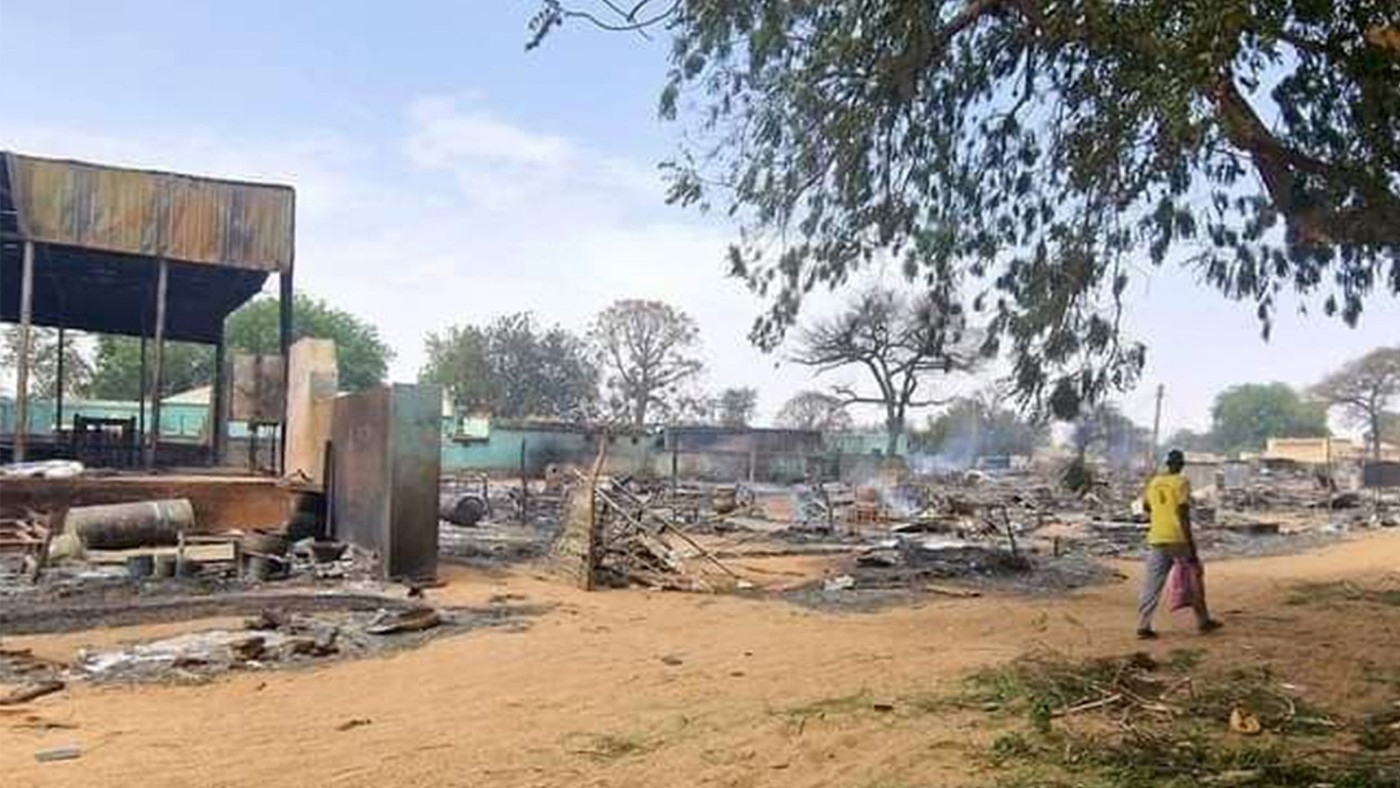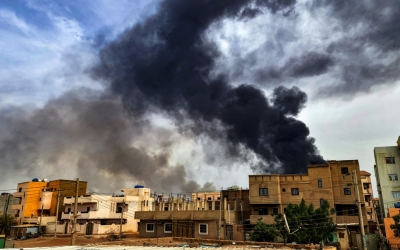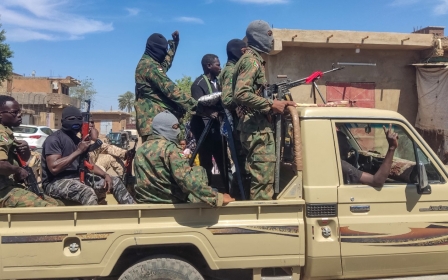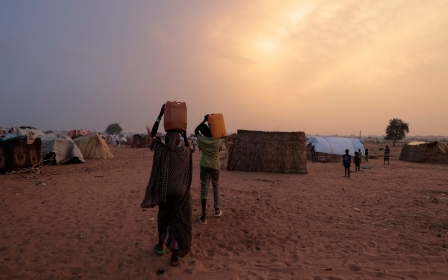Sudan: Genocide 'against non-Arab groups' taking place in Darfur

A newly released report from an international human rights organisation has concluded that a genocide is taking place against non-Arab groups in Sudan’s Darfur region.
The independent inquiry carried out by the Raoul Wallenberg Centre has found that there is “clear and convincing evidence” that the Rapid Support Forces (RSF) paramilitary and its allied militias “have committed and are committing genocide against the Masalit,” a Black African group.
The report, which cites the work of Middle East Eye on multiple occasions, also concludes that “the RSF and allied militias have committed and are committing direct and public incitement to genocide” and that all 153 states that have signed the Genocide Convention are “obligated to end complicity in and employ all means reasonably available to prevent and halt the genocide”.
It goes on to say that there is “clear and convincing evidence” that Sudan, the United Arab Emirates, Libya, Chad, the Central African Republic (CAR) and Russia via the actions of the Wagner Group are “complicit in the genocide”.
Middle East Eye has reported on the network of supply lines that exist to funnel arms and other goods from the UAE to the RSF, via allied groups and governments in Libya, Chad and the CAR.
Stay informed with MEE's newsletters
Sign up to get the latest alerts, insights and analysis, starting with Turkey Unpacked
The UAE is the Sudanese paramilitary’s main patron, with the supply of arms to the RSF also facilitated by Libyan commander Khalifa Haftar, and running overland from Chad and the CAR, as well as being flown out of airbases in Uganda.
The RSF has been at war with the Sudanese Armed Forces (SAF) since 15 April last year. The war has displaced over eight million people and has left 18 million “acutely food insecure”, according to the UN’s World Food Programme.
The paramilitary force has denied that it is being supplied by the UAE and rejected accusations that it is waging an ethnically motivated campaign of violence in Darfur.
'Today, one can only feel shocked – if not betrayed – by the ongoing level of indifference and impunity in the face of another genocide'
- Irwin Cotler, Raoul Wallenberg Centre
The newly released report, which was reviewed and endorsed by prominent human rights experts including Luis Moreno Ocampo, and Irwin Cotler, the chair of the Raoul Wallenberg Centre and a former Canadian justice minister, states that the war “turned a pre-existing humanitarian crisis into an emergency of unprecedented and global magnitude”.
As the inquiry notes, the RSF grew out of the Janjaweed militias, the “devils on horseback” employed by the government of Omar al-Bashir to violently quell uprisings in the first decade of the 21st century. The Janjaweed stand accused of responsibility for the deaths of hundreds of thousands of Sudanese during those years.
In 2013, the Janjaweed were officially absorbed into the Sudanese state as the Rapid Support Forces, with the RSF’s chief, Mohamed Hamdan Dagalo, the former Janjaweed commander better known as Hemeti, becoming indispensable to Bashir.
In 2019, Hemeti, along with current army chief Abdel Fattah al-Burhan, removed Bashir from power in response to a popular uprising against the autocrat. Two years later, in October 2021, the two men enacted a military coup to end a civilian power-sharing agreement, before going to war with one another in April 2023.
Atrocities in Darfur
In Darfur, the vast western region that serves as the RSF’s powerbase, the paramilitary group has been able to act almost completely without hindrance. Middle East Eye has reported throughout the war on the group’s targeting of the Masalit in cities including el-Geneina and el-Fasher.
Idriss, a 29-year-old from el-Geneina, the capital of West Darfur, told MEE in July that he had seen other Masalit Sudanese shot and killed by the RSF and its allied militias in front of him. Before escaping to Chad, he took photos of the dead bodies, which lined the streets of the city.
Women across Darfur - some as young as 12 - have been the victims of sexual assault perpetrated by men wearing RSF uniforms. At a meeting in Britain’s parliament on Wednesday, Zaza el-Sheikh, a Sudanese doctor, said that she and colleagues had met and examined 895 Sudanese women in Egypt who had been raped by fighters and were now pregnant as a result.
The Raoul Wallenberg Centre argues that there is clear evidence to conclude that the RSF is continuing the ethnically motivated genocide perpetrated by the Janjaweed militias against non-Arab groups in Darfur.
The report finds that there are “reasonable grounds to believe the RSF and allied militias are responsible for genocide against non-Arab groups other than the Masalit, including the Fur and Zaghawa”.
In his foreword to the report Cotler, who was a Canadian minister during the 2003 war in Darfur, writes that the “targeted identity-based campaign of destruction waged by the Rapid Support Forces (RSF) is the inevitable result of an ongoing culture of impunity in Darfur.”
“As this report demonstrates in chilling detail, the same perpetrators, now under the flag of the RSF, are committing the same atrocities against the same targeted groups, fuelled by the same dehumanisation, demonisation, incitement, and oft-expressed intent to destroy the Masalit or non-Arab groups.
“Twenty years ago,” Cotler writes, “the international community at least acknowledged the genocidal atrocities, though it utterly failed to take the necessary action to prevent them. Today, one can only feel shocked – if not betrayed – by the ongoing level of indifference and impunity in the face of another genocide that is being effectively silenced and sanitised.”
Middle East Eye delivers independent and unrivalled coverage and analysis of the Middle East, North Africa and beyond. To learn more about republishing this content and the associated fees, please fill out this form. More about MEE can be found here.



